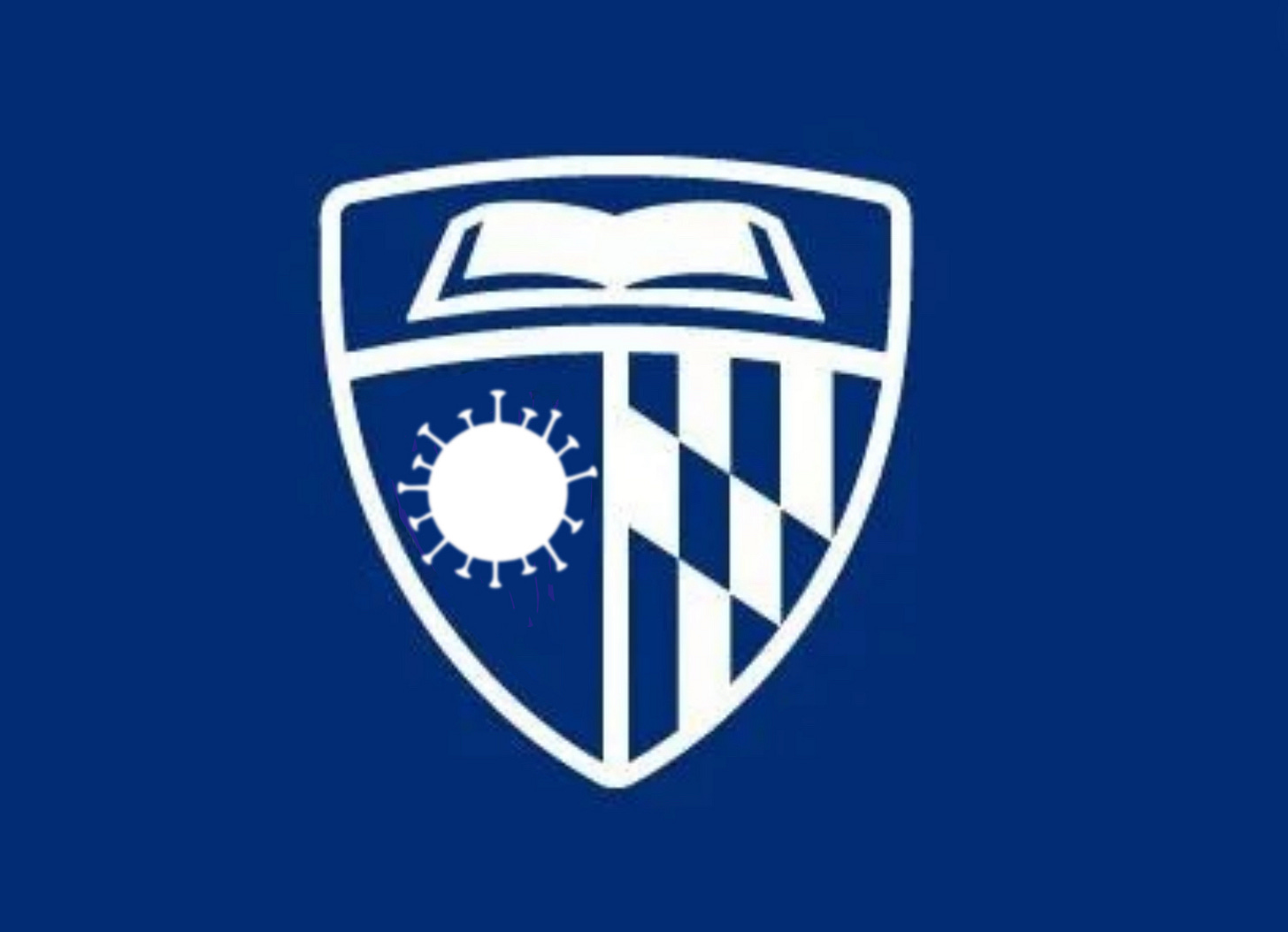Johns Hopkins to Hold “Fringe,” Dark Money Heavy COVID Summit
“This meeting has nothing to do with genuine improvements in public health policy.”
This piece was last updated on September 26, 2024.
Johns Hopkins is under fire after announcing that it will host a forum next week with a number of well known public health contrarians and representatives of right-wing dark money groups that have worked to politicize public health throughout the COVID-19 pandemic. A number of those groups have ties to billionaire industrialist and conservative powerbroker Charles Koch, who has been a major donor to Hopkins, giving $1.3 million to the school through his personal foundation between 2021 and 2022 and an additional $728,000 in 2019.
The “2024 Symposium on Health Policy,” which is set to take place on September 11, is being organized by the university’s Carey Business School with no involvement from its school of public health. The event appears to be another right-wing effort to rewrite the history of the COVID-19 pandemic in order to cast government efforts to control the spread of the virus that has killed roughly 1.2 million Americans in a negative light. A similar event featuring some of the same speakers is being planned at Stanford for early October. Koch has also been a major donor to Stanford, giving $3.3 million through his personal foundation between 2020 and 2022.
Like the Stanford summit, the Hopkins symposium is drawing sharp criticism from public health experts who are alarmed by the fringe medical perspectives the prestigious school is amplifying.
“Looks like there is big money behind the far-right COVID caucus as they seem to be able to pay for meetings now on two coasts,” Yale epidemiologist Gregg Gonsalves posted on Threads. “This is filled with a few good people, but mostly packed with the crew of folks who got it wrong from day one and spread misinformation for a living on the pandemic. It's convenient that it's hidden away from the public health school at @jhucarey, where those in charge are less familiar with this nonsense.”
Virologist John P. Moore, a professor of microbiology and immunology at Weill Cornell Medical College, told Important Context that “This meeting has nothing to do with genuine improvements in public health policy.”
”It’s all to do with fringe eccentrics meeting each other to preen and posture in front of politicians and a few journalists,” he said. “Some of the participants are after positions in the Trump administration…and will no doubt use this meeting to buff up their ‘credentials.”
There is significant overlap between the Hopkins symposium and the Stanford conference in terms of speakers. The organizer of the latter is participating in the former. Health economist and Stanford professor Dr. Jay Bhattacharya, a vocal advocate for a widely rebuked and discredited COVID herd immunity strategy based on the mass infection of young people, will join panel discussions on “physician autonomy and leadership” and “free speech in medicine,” which are remarkably similar to in theme to the planned “misinformation, censorship, and academic freedom” Stanford panel. They also mirrored a theme from the GOP House Select Subcommittee’s opening hearing in February 2023, at which Bhattacharya was a Republican expert witness.
The discussions seem engineered to provide a prestigious platform to a favorite narrative of Bhattacharya and the political right: that he and other contrarian medical voices were “censored” throughout the pandemic by the U.S. government despite being correct.
Notably, Bhattacharya’s false and misleading statements about COVID are too numerous to mention in this article. In May 2020, for example, he said it was highly unlikely that children would spread the virus to their parents or other adults. In January 2021, weeks before the country experienced a devastating COVID surge, he argued that a majority of India had achieved herd immunity and widespread vaccination was unnecessary.
The professor had his day in court to adjudicate his censorship claims. He and a group of private plaintiffs, represented by a legal outfit funded in part by billionaire industrialist and conservative powerbroker Charles Koch, sued the Biden administration for allegedly strong-arming social media companies into removing their content in violation of the First Amendment. The conservative Supreme Court, however, disagreed, finding 6-to-3 that Bhattacharya and his compatriots lacked standing because they had failed to show that they had actually been harmed by the government.
Two other contrarians speaking at Stanford next month are joining Bhattacharya at Hopkins. Neuroradiologist Dr. Scott Atlas, who helped steer the Trump administration’s COVID response and was condemned in 2020 by fellow faculty members over his efforts to “promote a view of COVID-19 that contradicts medical science,” will participate in the physician autonomy panel at Hopkins and another about “health policy 2025 and beyond.” Meanwhile, Dr. Marty Makary, a surgeon at Hopkins who joined Bhattacharya as a GOP expert witness before the House Select Subcommittee on the Coronavirus Pandemic in February 2023, will also join the Stanford professor for both of his scheduled panels next week.
Many of the Hopkins panelists, including Bhattacharya, Atlas, and Makary, have ties to ideologically right-wing dark money groups. Bhattacharya and Atlas are both senior fellows at the Hoover Institution, a right-wing think tank housed at Stanford. Bhattacharya and Makary are members of the so-called Norfolk Group, which was organized by the opaque Brownstone Institute.
Beyond the doctors, there is Leck Shannon, who will speak on a panel about “philanthropy and health policy.” Shannon is the healthcare director at Stand Together Trust, a dark money funding vehicle led by Charles Koch’s son, Charles Chase Koch, who is also a director and vice chairman of his father’s personal foundation. Koch’s political influence network has been particularly active throughout the pandemic, working to politicize COVID mitigation measures.
Another panelist from the Koch network is Michael F. Cannon, who will be moderating the health policy 2025 discussion. Cannon is an economist who serves as director of health policy studies at the libertarian Cato Institute and founded the group’s “Anti-Universal Coverage Club,” which is staunchly against universal healthcare.
Notably, some of the earliest recommendations from the World Health Organization when the pandemic hit included making healthcare free at the point of use and increasing government funding for public health systems.
Cato, which has long been opposed to both of those ideas, has been a recipient of Koch money for years. According to the latest federal tax filings, which are from 2022, the institute got $34,000 from Koch’s personal foundation, $47,000 from Stand Together Fellowships (formerly the Charles Koch Institute), and $1.8 million from Stand Together Trust that year.
The institute was also one of the earliest organizations to call for an end to COVID stay-at-home orders. Cannon himself has opposed mask mandates and called for a property tax strike to force schools open in early 2021 before the COVID vaccines were authorized for youths. In February 2022, as deaths from the deadly Omicron surge were skyrocketing, he argued that public health officials were too enticed by their own power to do what was necessary to restore public trust in public health, which he claimed was dialing back recommendations and allowing normal life to resume.
“These folks in these public health agencies—Dr. Fauci, you know, the FDA, the CDC…they’re good people who want to save lives and they have power, and they want to use that power to save lives, but it’s very hard to put down that power,” he said. “And so it’s very hard for them…even to recognize the negative impact they’re having on trust in public health officials.
Speaking on the Hopkins health policy 2025 panel will be Joseph Antos, a senior fellow emeritus at the American Enterprise Institute. AEI is a free market think tank backed by some of the most powerful corporate interests in the country. Over the years, it has received significant funding from the Koch family, including $666,000 in 2022, from Stand Together Trust.
Like other Koch-backed groups, AEI opposed government efforts to slow the combat COVID—even though the group’s own research in 2021 showed that a national lockdown would have provided broad societal benefit. As early as April 2020, the group’s Twitter account was pushing for a timeline for the end of state “lockdown” orders. By May, it had begun pushing to reopen schools. AEI also criticized the novel use of guaranteed income programs arising from economic pandemic response.
Antos himself has been an outspoken critic of single-payer plans and used the pandemic as an opportunity to push for “market-based reforms” to Medicare.
Two other Koch-funded groups that have embraced pandemic revisionism will be represented at Hopkins. A panel on healthcare spending will include Theo Merkel, a senior fellow at the Manhattan Institute for Policy Research and a senior research fellow at the healthcare-focused Paragon Health Institute. In 2022 alone, Stand Together Trust gave the Manhattan Institute $495,000 and Paragon Health $2.9 million.
Both groups staked out positions against COVID mitigation efforts. The Manhattan Institute adopting anti-lockdown narratives and false claims about masks to discourage their use. Paragon Health has promoted the narrative that the costs of “lockdowns” outweighed the benefits. The director of the group’s Public Health and American Well-Being Initiative argued that states without them fared better and, in the fall of 2022, came out against the recommendation by the Centers for Disease Control and Prevention that young people receive the bivalent booster on the grounds that there was insufficient evidence backing the decision.
Like Antos, Merkel also opposes government-run healthcare and recently warned of the “stupendous” costs of Democratic presidential candidate Kamala Harris’ Medicare-for-all proposal from 2019.
Another Manhattan Institute senior fellow, Chris Pope, is also participating in the symposium. Pope will speak on a panel about employer-sponsored health insurance. In the past, he has argued in favor of pushing Medicare enrollees onto privately administered Medicare Advantage plans, further injecting the free market into the program. Paragon Health’s Brian Blase, meanwhile, is joining the health policy 2025 discussion.
Then there is Avik Roy, president of Koch-backed Foundation for Research on Equal Opportunity (FREOPP), who is slated to moderate a panel discussion called “views from the Hill.” Roy was previously a senior fellow at the Manhattan Institute and is the policy editor at Forbes.
FREOPP, which received $225,000 from Stand Together Trust in 2022, features a section on its website dedicated to COVID-19 that reads, “We should learn from excessive economic restrictions and school closures in order to ensure that we protect both lives and livelihoods in future pandemics. Most importantly, we must overhaul the ways in which we make decisions and acquire data about critical public health threats.”
Alongside the various panels stacked with right-wing operatives and public health contrarians, the Hopkins symposium will also feature a discussion to field perspectives from prominent, mainstream journalists who write about healthcare and public health, such as moderator Caitlin Owens from Axios and Dan Diamond from The Washington Post.
In a post on BlueSky on Tuesday, Diamond wrote that he had been invited weeks earlier to the journalist panel without knowledge of the full agenda. A spokesperson from The Post confirmed that Diamond’s role is limited merely to the journalism panel.
Correction 7/7/24: An earlier version of this article said that Charles Koch was a director of Stand Together Trust. His son, Charles Chase Koch is one of group’s the directors.







